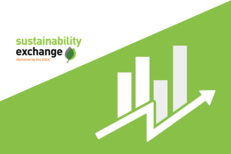Displaying 401–420
of 420 results | View 20
50
100
per page
-
PDF
A briefing on new waste management legislation by the University of Greenwich to its staff who deal with or are responsible for handling and collection of waste for disposal...
Tags:
college | policy | resource efficiency and waste | Operational | reuse | estates operations | legislation | London | recycle | Background Information | Education Institution
-
Web Page
Link to the Global Social Compliance Programme, a business-driven programme for the continuous improvement of working and environmental conditions in global supply chains
Tags:
global | social | compliance
-
Web Page
The Ethical Trading Initiative (ETI) is an alliance of companies, trade unions and voluntary organisations, working in partnership to improve the lives of poor and vulnerable...
Tags:
ethical | initiative | trading | eti
-
Web Page
Responsible supply chain management isn’t just a question of doing the right thing – it makes good business sense. This guide outlines key issues & details a...
Tags:
supply chain | BITC
-
PDF
Achieving Excellence in Construction Procurement Guide in 'Whole-life Costing and Cost Management', published by the Office of Government Commerce in 2007. Link to the...
Tags:
procurement | guide | construction | estates operations | strategic | Procurement and Supplier Engagement | Sustainable Construction and Renovation | Out of Sector | costing | cost management
-
PDF
The UK Government's Sustainable Procurement Action Plan produced by DEFRA in 2007. Incorporating the Government response to the report of the Sustainable Task Force. Part...
Tags:
procurement | report | strategic | Procurement and Supplier Engagement | government | DEFRA | Operations | Out of Sector | Action Plan
-
PDF
This 2011 report, compiled by Ernst & Young, defines the changing meaning of sustainability for a Chief Financial Officer in any organisation, including universities and...
Tags:
finance | CFO
-
Word Document
This UCU energy inspection checklist is compiled from a combination of Carbon Trust and Prospect checklists and is designed to assess the energy use in your building via an...
Tags:
college | higher education institution | resource efficiency and waste | Operational | estates operations | Utilities | strategic | Staff Engagement and Human Resources | Tools
-
Web Page
HEFCE's Higher Education Innovation Fund (HEIF) supports HEIs' knowledge exchange activities and interactions with business and the wider community
Tags:
HEFCE | exchange
-
PDF
This document aims to help public bodies access potential sources of energy efficiency and renewable energy finance and to assess the costs, risks and benefits of doing this.
Tags:
energy | carbon | efficiency | business | finance | risk | case | renewable | cost
-
Web Page
A link to the website of the Staffordshire University hub of regeneration and sustainability where you can find out more about how it works with with regeneration professionals.
Tags:
sustainability | development | finance | health | wellbeing | economy | culture | regeneration
-
Web Page
The link takes you to more information about the CRC Energy Efficiency Scheme on the Carbon Trust's website.
Tags:
energy | carbon | efficiency | emissions | reduction
-
Web Page
This guide discusses; Strategic Overview, Contractual and Project Methodology, Financial Incentives, Renewable Power Technologies and Renewable Heat Technologies
Tags:
guide | renewable
-
Web Page
The Government Buying Standards (formerly the Buy Sustainable - Quick Wins) have been designed to make it easier for government buyers to buy sustainably.
Tags:
procurement | government | buying
-
Web Page
The Waste Electrical and Electronic Equipment (WEEE) directive came into force in January 2007 and aims to both reduce the amount of WEEE being produced and encourage everyone...
Tags:
reuse | business | it | recycle | government | guidance | Regulations | uk | industry | reduce | Electrical waste | Distributor Takeback Scheme | ONLINE RETAILERS
-
PDF
Cathy Green, Sustainability Officer (Voluntary Activities), University of Gloucestershire, asked EAUC Members for tips for compiling an informal ‘Guide to organising...
Tags:
guide | event organisation
-
PDF
This Universities UK publication showcases the contribution of higher education institutions to this ‘greening’ agenda. Published 2008.
Tags:
Universities UK | greening | spires | agenda | greening spires | green agenda
-
Web Page
This guide introduces two types of carbon footprinting that affect businesses.
Tags:
energy | carbon
-
PDF
A publication from the Royal Institution of Chartered Surveyors sets out the key issues and major challenges for sustainable property investment and management.
Tags:
investment | property | surveyors
-
PDF
In October 2012 Glasgow Caledonian University hosted a Sustainable Procurement Topic Support Network focussed on Scope 3 Supply Chain (procurement) emissions.
Tags:
procurement | emissions | scope 3





 Except where otherwise stated, content on this site is
licensed under a Creative Commons Attribution 3.0 License.
Except where otherwise stated, content on this site is
licensed under a Creative Commons Attribution 3.0 License.
